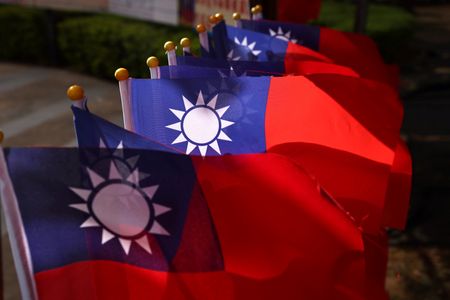
Nancy Peloci’s Avoidable Visit to Taiwan: Fall Out

The controversial visit to Taiwan (2nd August 2022) by the US Speaker, House of Representatives, Nancy Peloci is over but has left some questions unanswered. Meanwhile, the visit’s fall out is unfolding.
The visit came in the background of the deteriorating relations between China and the USA caused by several cumulative factors including China’s role in the spread of Covid 19 pandemic, its aggressive conduct in South China and beyond, trade and IPR related disputes, accelerated activities of QUAD, and above all China’s perceived ambitions to challenge the US position as super global power.
An Avoidable Visit at this juncture?
Taiwan is an extremely sensitive issue for China which considers Taiwan as its integral part and is committed to integrate it with mainland China, if required, by use of force. China’s strong opposition to the visit and stern warnings of serious consequences if Peloci were to visit Taiwan were thus on expected lines. In 1995, the US got away with a similar visit to Taiwan without much resistance from China. But the China of 2022 is much different and far more powerful and aggressive than the China of 1995.
A simple cost-and-benefit analysis would therefore suggest that Pelosi’s visit would only cause further damage to bilateral relations and could also endanger the peace, security and stability in the region with widespread repercussions for the rest of the world. The questions are thus bound to be asked as to what useful purpose, if any, could the visit serve. Was it really necessary for Peloci to undertake an in-person visit merely to reiterate the well-known fact that there is a bipartisan support in the USA for Taiwan and that the Americans will always standby Taiwan?
Peloci’s decision to go ahead with the visit irrespective of the possible adverse consequences reinforces the US’s ‘strategic ambiguity’ in the given case. On the one hand, the US President Biden appeared to disassociate himself with Peloci’s decision. On the eve of the visit, he, citing the assessment by the Pentagon, said Pelosi’s visit to Taiwan was not a good idea. Biden even called up his Chinese counterpart, to underline once again that there was no change in the US’s ‘One-China policy’. On the other hand, he did little to persuade Pelosi to abandon the idea of her visit which was bound to irritate China and had the potential of triggering an avoidable conflict. Or was this entire episode a part of the script developed jointly by Biden and Peloci to give a strong message to China that neither the US nor Taiwan will be pressurised by the China’s aggressive posturing towards Taiwan, while simultaneously addressing the domestic constituency?
The Fall Out of the Visit
China’s response to Peloci’s visit has so far been two-fold: On the one hand China has launched unprecedented military drills surrounding Taiwan and on the other it has ‘cancelled’ or “suspended” its cooperation with US in the several key areas. It has cancelled cooperation in the following three areas: China-U.S. Theatre Commanders Talk; China-U.S. Defence Policy Coordination Talks (DPCT) and China-U.S. Military Maritime Consultative Agreement (MMCA) meetings.
In addition, China has ‘suspended’ cooperation in the following five areas: China-U.S. cooperation on the repatriation of illegal immigrants; China-U.S. cooperation on legal assistance in criminal matters; China-U.S. cooperation against transnational crimes; China-U.S. counternarcotics cooperation and China-U.S. talks on climate change.
Most of these areas are considered important from the American perspective. The suspension of talks on climate change has global implications. The US and China are the number one and number two global economies and also two biggest polluters and it is absolutely important that the two countries remain engaged on this crucial issue of climate change. The US National Security Council spokesman John Kirby reportedly described the decision as “fundamentally irresponsible.” The UN Secretary General’s Spokesperson said, “For the secretary-general, there is no way to solve the most pressing problems of all the world without an effective dialogue and cooperation between the two countries”.
Notably, China has excluded trade and investments out of the list of cancelled/suspended areas of cooperation.
In a nutshell, Nancy Pelosi’s visit to Taiwan at this juncture was arguably avoidable. It has only pushed the sinking relationship between the USA and China towards the lowest ebb and has escalated tensions in the region.
The US decision to defer the testing of an Air Force Minuteman III Inter-Continental Ballistic Missile is a positive decision in itself but can it alone defuse the mounting tensions over Taiwan?
It looks unlikely at this moment that the US will cross the red lines to abandon One China Policy and recognise Taiwan as an independent State, and therefore China may also not adventure into integrating Taiwan by use of force.
***********
Disclaimer
The opinions expressed in this article are the author’s own and do not reflect the views of Chanakya Forum. All information provided in this article including timeliness, completeness, accuracy, suitability or validity of information referenced therein, is the sole responsibility of the author. www.chanakyaforum.com does not assume any responsibility for the same.
Chanakya Forum is now on . Click here to join our channel (@ChanakyaForum) and stay updated with the latest headlines and articles.
Important
We work round the clock to bring you the finest articles and updates from around the world. There is a team that works tirelessly to ensure that you have a seamless reading experience. But all this costs money. Please support us so that we keep doing what we do best. Happy Reading
Support Us





















POST COMMENTS (1)
Prof. Dilip Mohite